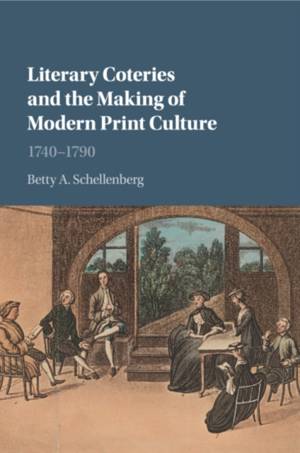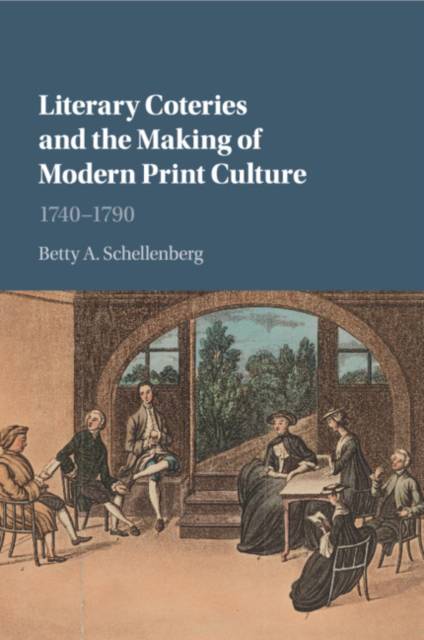
Door een staking bij bpost kan je online bestelling op dit moment iets langer onderweg zijn dan voorzien. Dringend iets nodig? Onze winkels ontvangen jou met open armen!
- Afhalen na 1 uur in een winkel met voorraad
- Gratis thuislevering in België vanaf € 30
- Ruim aanbod met 7 miljoen producten
Door een staking bij bpost kan je online bestelling op dit moment iets langer onderweg zijn dan voorzien. Dringend iets nodig? Onze winkels ontvangen jou met open armen!
- Afhalen na 1 uur in een winkel met voorraad
- Gratis thuislevering in België vanaf € 30
- Ruim aanbod met 7 miljoen producten
Zoeken
Literary Coteries and the Making of Modern Print Culture
1740–1790
Betty A Schellenberg
Paperback | Engels
€ 60,95
+ 121 punten
Uitvoering
Omschrijving
Literary Coteries and the Making of Modern Print Culture offers the first study of manuscript-producing coteries as an integral element of eighteenth-century Britain's literary culture. As a corrective to literary histories assuming that the dominance of print meant the demise of a vital scribal culture, the book profiles four interrelated and influential coteries, focusing on each group's deployment of traditional scribal practices, on key individuals who served as bridges between networks, and on the aesthetic and cultural work performed by the group. The book also explores points of intersection between coteries and the print trade, whether in the form of individuals who straddled the two cultures; publishing events in which the two media regimes collaborated or came into conflict; literary conventions adapted from manuscript practice to serve the ends of print; or simply poetry hand-copied from magazines. Together, these instances demonstrate how scribal modes shaped modern literary production. This title is also available as Open Access.
Specificaties
Betrokkenen
- Auteur(s):
- Uitgeverij:
Inhoud
- Aantal bladzijden:
- 313
- Taal:
- Engels
Eigenschappen
- Productcode (EAN):
- 9781107571877
- Verschijningsdatum:
- 20/12/2018
- Uitvoering:
- Paperback
- Formaat:
- Trade paperback (VS)
- Afmetingen:
- 152 mm x 229 mm
- Gewicht:
- 430 g

Alleen bij Standaard Boekhandel
+ 121 punten op je klantenkaart van Standaard Boekhandel
Beoordelingen
We publiceren alleen reviews die voldoen aan de voorwaarden voor reviews. Bekijk onze voorwaarden voor reviews.











